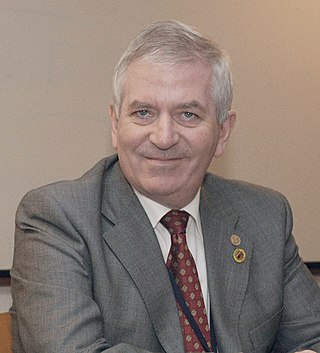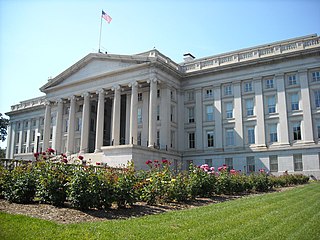
The economy of Kenya is market-based with a few state enterprises. Kenya has an emerging market and is an averagely industrialised nation ahead of its East African peers. Currently a lower middle income nation, Kenya plans to be a newly industrialised nation by 2030. The major industries driving the Kenyan economy include financial services, agriculture, real estate, manufacturing, logistics, tourism, retail and energy. As of 2020, Kenya had the third largest economy in Sub-Saharan Africa, behind Nigeria and South Africa. Regionally, Kenya has had a stronger and more stable economy compared to its neighboring countries within East Africa.By 2023, the country had become Africa's largest start-up hub by both funds invested and number of projects.

Ireland's Corporate Tax System is a central component of Ireland's economy. In 2016–17, foreign firms paid 80% of Irish corporate tax, employed 25% of the Irish labour force, and created 57% of Irish OECD non-farm value-add. As of 2017, 25 of the top 50 Irish firms were U.S.–controlled businesses, representing 70% of the revenue of the top 50 Irish firms. By 2018, Ireland had received the most U.S. § Corporate tax inversions in history, and Apple was over one–fifth of Irish GDP. Academics rank Ireland as the largest tax haven; larger than the Caribbean tax haven system.

United Nations Security Council resolution 1591, adopted on 29 March 2005, after recalling resolutions 1547 (2004), 1556 (2004), 1564 (2004), 1574 (2004), 1585 (2005), 1588 (2005) and 1590 (2005) on the situation in Sudan, the council placed a travel ban and asset freeze on those "impeding the peace process" in Darfur.

Kathi Lynn Austin is an expert on arms trafficking, peace and security, and human rights. She has investigated the illegal trade in weapons, illicit trafficking operations, illegal resource exploitation and terrorism for over 20 years, and has documented conflicts in Africa, Latin America, East and Central Europe, and South Asia.

Marleen Temmerman is a Belgian gynaecologist, professor and former Senator, currently heading the Centre of Excellence in Women and Child Health at Aga Khan University in Nairobi, Kenya.
Fiscal policy are "measures employed by governments to stabilize the economy, specifically by manipulating the levels and allocations of taxes and government expenditures". In the Philippines, this is characterized by continuous and increasing levels of debt and budget deficits, though there were improvements in the last few years of the first decade of the 21st century.
Kenya's Truth, Justice and Reconciliation Commission (TJRC) was established in 2008. Kenya's modern history has been marked not only by liberation struggles but also by ethnic conflicts, semi-despotic regimes, marginalization and political violence, including the 1982 attempted coup d'état, the Shifta War, and the 2007 post-election violence.

Base erosion and profit shifting (BEPS) refers to corporate tax planning strategies used by multinationals to "shift" profits from higher-tax jurisdictions to lower-tax jurisdictions or no-tax locations where there is little or no economic activity, thus "eroding" the "tax-base" of the higher-tax jurisdictions using deductible payments such as interest or royalties. For the government, the tax base is a company's income or profit. Tax is levied as a percentage on this income/profit. When that income / profit is transferred to a tax haven, the tax base is eroded and the company does not pay taxes to the country that is generating the income. As a result, tax revenues are reduced and the country is disadvantaged. The Organisation for Economic Co-operation and Development (OECD) define BEPS strategies as "exploiting gaps and mismatches in tax rules". While some of the tactics are illegal, the majority are not. Because businesses that operate across borders can utilize BEPS to obtain a competitive edge over domestic businesses, it affects the righteousness and integrity of tax systems. Furthermore, it lessens deliberate compliance, when taxpayers notice multinationals legally avoiding corporate income taxes. Because developing nations rely more heavily on corporate income tax, they are disproportionately affected by BEPS.

Leprechaun economics was a term coined by economist Paul Krugman to describe the 26.3 per cent rise in Irish 2015 GDP, later revised to 34.4 per cent, in a 12 July 2016 publication by the Irish Central Statistics Office (CSO), restating 2015 Irish national accounts. At that point, the distortion of Irish economic data by tax-driven accounting flows reached a climax. In 2020, Krugman said the term was a feature of all tax havens.
Anisia Karlo Achieng Olworo is a South Sudanese MP and women's rights activist.
Stellah Wairimu Bosire, is a Kenyan physician, corporate executive, human rights activist and author, a former co-executive director of Uhai Eashri and previously served as the chief executive officer of Kenya Medical Association and as the vice-chair of the HIV and AIDS Tribunal of Kenya.

Modified gross national income is a metric used by the Central Statistics Office (Ireland) to measure the Irish economy rather than GNI or GDP. GNI* is GNI minus the depreciation on Intellectual Property, depreciation on leased aircraft and the net factor income of redomiciled PLCs.

Ikponwosa "I.K." Lauretta Ero is a lawyer and advocate in the field of international human rights. She is the first United Nations Independent Expert on the enjoyment of human rights by persons with albinism. Ero was a key player in drawing global attention to the human rights issues faced by people with albinism worldwide, particularly in the region of Africa where they were being attacked for their body parts.

Wanjeri Nderu is a human rights activist from Kenya.
Mary Lawlor is Adjunct Professor of Business and Human Rights in the School of Business of Trinity College Dublin. An Irish national, she is currently the United Nations Special Rapporteur on the situation of human rights defenders, appointed for a three-year term from May 2020. She is the founder and former Executive Director of Front Line Defenders and former Director of the Irish branch of Amnesty International.

The global minimum corporate tax rate, or simply the global minimum tax, is a minimum rate of tax on corporate income internationally agreed upon and accepted by individual jurisdictions in the OECD/G20 Inclusive Framework. Each country would be eligible for a share of revenue generated by the tax. The aim is to reduce tax competition between countries and discourage multinational corporations (MNC) from profit shifting that avoids taxes.

Martha Karambu Koome is a Kenyan advocate who is currently serving as the Chief Justice of Kenya, and is the first woman to occupy the post.

Francesca P. Albanese is an Italian international lawyer and academic. On 1 May 2022, she was appointed United Nations Special Rapporteur on the occupied Palestinian territories for a three-year term. She is the first woman to hold the position.
Astrid Jovanna Puentes Riaño is a Colombian-born Mexican law professor. She has led the Interamerican Association for Environmental Defense (AIDA) to support the people who live in La Oroya, "one of the most polluted places on Earth". In 2024 she became the United Nations Special Rapporteur on the human right to a healthy environment.
Dorothy Estrada-Tanck is a Mexican academic who has worked in Spain. She has led the United Nations Working Group on discrimination against women and girls. She co-authored a report about the "gender apartheid" in Afghanistan which they considered a crime against humanity.













